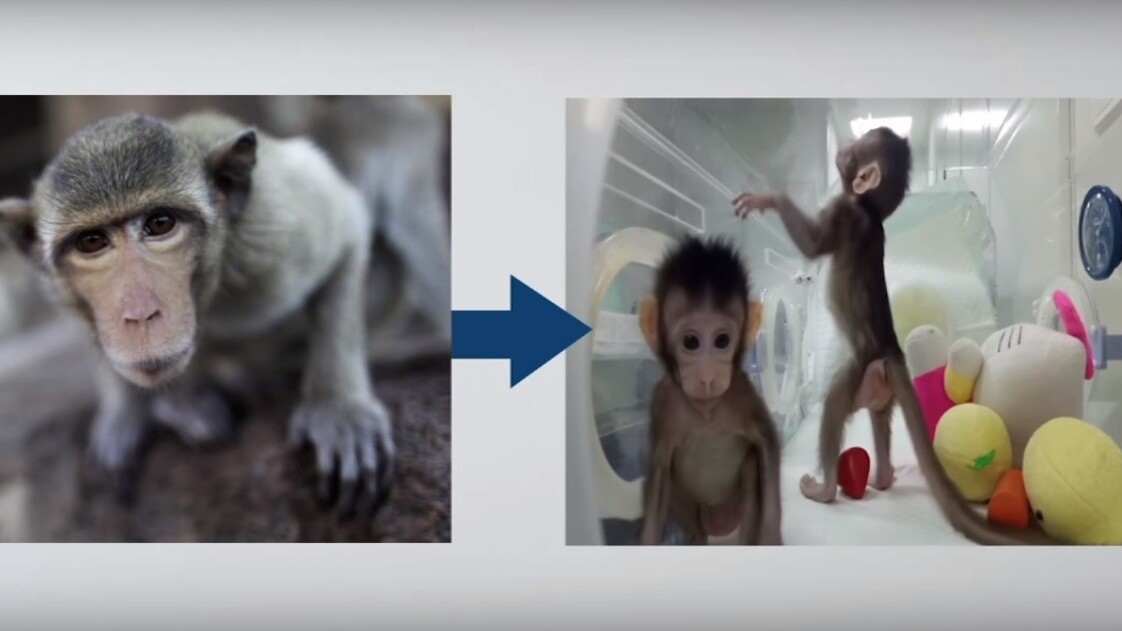
We’re just a couple “eurekas” in the 3D-printing industry away from having monkeys on-demand. A group of Chinese scientists just broke a cloning barrier by creating the first-ever copies of a non-human primate (NHP).
The scientists were able to successfully clone a cynomolgus monkey using a technique similar to the controversial one that produced “Dolly” the sheep. Called a Somatic cell nuclear transfer, the process basically involves erasing the nucleus of an egg-cell and replacing it with a donor nucleus.
The result was these specimens named Zhong Zhong and Hua Hua:
According to the Washington Post, the researchers claim their project could reduce the number of research monkeys necessary for scientists to conduct animal testing. Theoretically, it makes sense: creating a genetically superior monkey would remove the need to compensate for genetic differences. If all monkeys have the same DNA there’s a lot less noise in your test environment.
But science doesn’t care about the scientist’s intent. The ethical implications of cloning – much like stem cell research – haven’t exactly been sorted out. Having access to an infinite number of monkeys could, arguably, undermine moral efforts to protect animals from harmful scientific experimentation.
Whether or not Zhong Zhong or Hua Hua end up living a rock star life on the lecture circuit, or get infected with HIV in order to test drug therapies, the future looks problematic.
And make no mistake, the process by which they were created wasn’t a simple one. It’s incredibly time-consuming, ridiculously expensive, and has a really small success rate. There’s no need to drop what you’re doing and start calling PETA (there’s really never a need to contact PETA, ever) because we’re not quite at the “Black Mirror episode” segment of this issue – yet.
There are also limitless implications for good – and a reason why the US and UK governments continue to stand by their independent decisions to support the practice of testing on NHPs. Many may be inclined to feel that any number of human lives saved is worth experimenting on monkeys. And the more monkeys we have to test on, the easier it’ll be to get those results.
That probably doesn’t mean much to the cynomolgus monkeys though. Another name for them is the crab-eating macaque – one of nature’s specialists whose evolution is an amazing tale of adaptation.
Get the TNW newsletter
Get the most important tech news in your inbox each week.




